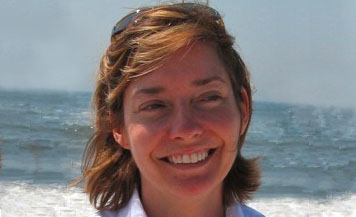 |
Guggenheim Fellowship Awarded to Alice Dreger, PhD
Alice D. Dreger, PhD, associate professor, Medical Humanities and Bioethics Program, has been awarded a fellowship in support of her work in the history of medicine by the John Simon Guggenheim Memorial Foundation. Guggenheim Fellowships are awarded for outstanding success and extraordinary promise for continued accomplishment.”
Dr. Dreger’s proposal for the fellowship was to write a book based on her study of science and identity politics in the Internet age. “I am interested in studying what happens when scientific claims clash with the claims of identity politics groups—groups which coalesce around identities, such as gay rights groups or those that self-identify as having recovered memories. How do we deal with such disconnects between self-understanding and scientific understanding? How should we?”
Her article, “The Controversy Surrounding The Man Who Would Be Queen: A Case History of the Politics of Science, Identity, and Sex in the Internet Age” is the antecedent of the proposed book. The article is due to be published June 2008 in Archives of Sexual Behavior and will include 23 commentaries and her responses to the commentaries.
When asked about the award, Dr. Dreger says, “I am honored to be a part of such a prestigious group of scholars. I was so excited when I heard the news I had to take a long walk. Then I went home and called my family and friends.” The purpose of the program is to allow as much creative freedom as possible to the Fellows and, although the grants are made freely and without stipulations, Dreger is committed to using the funds to work on the book she proposed.
Dr. Dreger came to Northwestern in 2005 from Michigan State University as a visiting associate professor in the Medical Humanities and Bioethics Program. In 2007 she became a clinical associate professor. “I feel sure that part of the reason I got the Guggenheim is because of Northwestern. I am so grateful for the support I have received from my department, college, and the University. The leadership here takes my work seriously and has given me a unique position that allows me time and flexibility for my research and advocacy,” she says. Most of Dreger’s work focuses on the social and medical treatment of people born with norm-challenging anatomies, such as disorders of sex development, conjoinment, dwarfism, and cleft lip. She has also written extensively on the politics of science and medicine, especially the politics of sex research and of cosmetic surgery. As part of her work, Dr. Dreger travels extensively and speaks at medical and humanities conferences. Her topics include the tendency to treat anomalies in terms of simplistic social norms.
“I feel that the problem often is the social system and not the patient. Most have described their bodies as normal for them.” She has found that how well children do often depends on how well the parents cope with their own stress and guilt. And so she finds that her work also includes talking to the parents of those who are born with norm-challenging anomalies.






